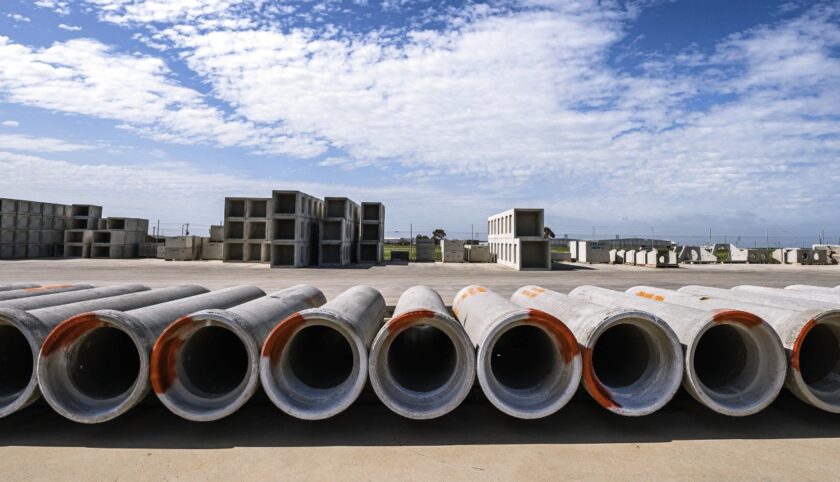10 Expert Tips for Choosing the Right Construction Materials

When starting a construction project, the choice of materials can have a big impact on the quality and success of the final structure. With so many options on the market, selecting what works best can be overwhelming. In this article, you will discover the ten expert tips that will help you make informed decisions, from understanding the basics to picking the perfect materials.
1. Consider the Purpose of the Project
Before choosing any material, it’s important to understand the purpose of the project. For example, a residential structure may need materials that offer insulation, while a warehouse may need materials that focus on durability. Furthermore, the function of the structure guides the selection process, ensuring that the materials meet the specific needs of the project.
On top of that, the environment in which the structure will exist also plays a significant role. If the area experiences heavy rainfall or strong winds, materials that can withstand those elements should be prioritized. This way, it will help ensure the longevity of the project and avoid future repairs.
2. Understand Local Building Codes
Keep in mind that the building codes vary from region to region and are established to ensure safety standards are met. Using these codes can restrict the use of certain materials or require specific types based on the area’s climate or risks, such as earthquakes or floods.
As you are selecting materials, it’s crucial to be familiar with the local regulations to avoid any compliance issues. Failure to follow local codes can result in delays or the need to rebuild sections of the project. Reviewing codes early in the planning phase will save time and effort later on, keeping the project on track.
3. Prioritize Quality Over Cost
While it can be tempting to select cheaper materials to cut costs, this may lead to higher expenses in the long run. Buying high-quality materials often lasts longer and performs better, reducing the need for repairs or replacement. For more insights on selecting quality materials, consider visiting this link https://civilmart.com.au/, which provides valuable information on durable options.
Additionally, a slightly higher initial investment can ensure durability and reduce the overall maintenance costs of the structure. Choosing quality materials also impacts the safety and stability of the project. Inferior materials might not offer the strength needed, leading to possible structural issues over time.
4. Look for Energy-Efficient Options
Energy-efficient materials help save on utility costs over time and contribute to sustainable construction. Insulation and roofing materials with energy-saving features can regulate indoor temperatures, reducing the need for heating or cooling. Many modern materials are designed with sustainability in mind. Look for certifications that indicate energy efficiency, as this can make a difference in utility savings.
5. Think About Maintenance Needs
Don’t forget that the choice of materials can affect how much maintenance will be required in the future. Some materials, like metal roofing or composite decking, require very little upkeep, while others, like wood, may need regular painting or sealing.
Think about the level of maintenance that will be realistic for the structure once the project is complete. Low-maintenance materials are often a smart choice for reducing long-term expenses and time. So, the initial cost may be higher, but the convenience and savings over time are worth considering.
6. Choose Materials That Suit the Aesthetic
Since functionality is crucial, the materials chosen should fit the design and appearance of the building. For example, a modern building may call for sleek, industrial materials, while a traditional design may use natural stone or wood.. Therefore, using some certain materials may develop a patina or require refinishing to maintain their visual appeal.
7. Evaluate Availability and Lead Time
Availability of materials can affect the timeline of a project. There are many materials that are sourced from faraway locations that may have long lead times, delaying construction. That’s why choosing materials that are readily available to avoid potential setbacks is a good idea.
On the other hand, it is also wise to order materials ahead of time to make sure that there will be no shortages or delays. This means that if you have all the construction materials on-site that are needed or provided immediately, allows the project to progress efficiently without any interruptions.
8. See for Eco-Friendly Alternatives
Always remember that construction materials that are made from recycled or renewable resources help reduce the environmental impact of construction. Bamboo and recycled metal are great examples of eco-friendly options that can save you money and environment.
Purchasing these materials not only contributes to a greener planet but can also appeal to clients or buyers looking for environmentally conscious solutions. With advances in technology, eco-friendly materials are now just as durable and attractive as traditional ones.
9. Consult with Experts
Asking advice from professionals before making final material decisions is a valuable step. Architects and contractors bring experience and knowledge that can help identify the best materials for a project. Engaging experts early in the process also ensures that potential issues are caught before construction begins. Professionals recommendations can avoid mistakes and ensure the project stays within budget.
10. Factor in Future Expansion
If there’s a chance the building may need to be expanded or modified in the future, this should be considered when choosing materials. Using materials that are easy to work with can make future alterations simpler and more cost-effective.
Take this as an example, modular materials or designs allow for easier additions without extensive demolition. Planning for potential growth helps avoid difficulties down the line. For this reason, flexible materials allow for changes while maintaining the integrity and appearance of the original structure.
High-Quality Materials for Lasting Success!
Selecting the proper construction materials plays a key role in ensuring a project’s durability and long-term success. By focusing on aspects like quality, functionality, adherence to local building codes, and sustainability, smart choices can be made to create a structure that is reliable. These expert tips help streamline the process of choosing materials that meet the project’s needs.
Spotted something? Got a story? Send a Facebook Message | A direct message on Twitter | Email: [email protected] Latest News









